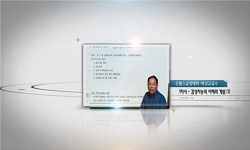This study examined the effects of child's emotional intelligence, verbal ability, and mother's rejective parenting on child's overt and relational aggression. Participants were 200 children(111 boys, 89 girls) and their mothers. Mother's rejective pa...
http://chineseinput.net/에서 pinyin(병음)방식으로 중국어를 변환할 수 있습니다.
변환된 중국어를 복사하여 사용하시면 됩니다.
- 中文 을 입력하시려면 zhongwen을 입력하시고 space를누르시면됩니다.
- 北京 을 입력하시려면 beijing을 입력하시고 space를 누르시면 됩니다.

어머니의 거부적 양육태도가 유아의 공격성에 미치는 영향에 대한 정서지능 및 언어능력의 역할 = The Role of Child's Emotional Intelligence and Verbal Ability on the Relations between Mother's Rejective Parenting and Child's Aggression
한글로보기https://www.riss.kr/link?id=A104447701
- 저자
- 발행기관
- 학술지명
- 권호사항
-
발행연도
2014
-
작성언어
Korean
- 주제어
-
등재정보
KCI등재
-
자료형태
학술저널
- 발행기관 URL
-
수록면
51-72(22쪽)
-
KCI 피인용횟수
25
- 제공처
-
0
상세조회 -
0
다운로드
부가정보
다국어 초록 (Multilingual Abstract)
This study examined the effects of child's emotional intelligence, verbal ability, and mother's rejective parenting on child's overt and relational aggression. Participants were 200 children(111 boys, 89 girls) and their mothers. Mother's rejective parenting was assessed by a mother reported questionnaire. The teachers completed rating scales to measure the child's aggression and emotional intelligence. Child's verbal ability was evaluated by the vocabulary test of K-WPPSI. The collected data was analyzed using descriptive statistics, correlations, and hierarchical multiple regression. Results showed that mother's rejective parenting was positively related to their overt and relational aggression. Child's emotional intelligence had a negative relation to their overt and relational aggression. Child's verbal ability was negatively related to their overt aggression. Hierarchical regression analysis indicated that the interaction of mother's rejective parenting and child's emotional intelligence predicted the child's relational aggression. Mother's rejective parenting, whose child demonstrated a lower level of emotional intelligence, was associated significantly with relational aggression. In addition, the association between a mother's rejective parenting and a child's overt aggression was partially mediated by a child's verbal ability.
국문 초록 (Abstract)
본 연구는 취학 전 유아를 대상으로 공격성과 관련된 대인간 맥락 요인과 개인 내 요인을 이해하기 위하여 어머니의 거부적 양육태도 및 유아의 정서지능과 언어능력이 이들의 관계적 공격...
본 연구는 취학 전 유아를 대상으로 공격성과 관련된 대인간 맥락 요인과 개인 내 요인을 이해하기 위하여 어머니의 거부적 양육태도 및 유아의 정서지능과 언어능력이 이들의 관계적 공격성과 외현적 공격성에 어떠한 방식으로 영향을 미치는지 알아보고자 하였다. 이를 위해 어머니의 거부적 양육태도, 유아의 정서지능과 언어능력이 유아의 관계적 공격성과 외현적 공격성에 어떠한 상관관계가 있으며, 어머니의 거부적 양육태도가 유아의 공격성에 미치는 영향을 유아의 정서지능이 조절하는지, 그리고 유아의 언어능력이 매개하는지를 살펴보았다. 이를 위하여 유아 200명(남아 111명, 여아 89명)과 그들의 어머니를 연구대상으로 하였다. 연구결과, 어머니의 거부적 양육태도는 유아의 관계적 및 외현적 공격성과 유의한 정적 상관관계를, 유아의 정서지능은 관계적 및 외현적 공격성과 유의한 부적 상관관계를, 유아의 언어능력은 유아의 외현적 공격성과 유의한 부적 상관관계를 나타내었다. 다음으로 유아의 관계적 공격성에 대해 어머니의 거부적 양육태도와 유아의 정서지능의 상호작용 효과가 유의하게 나타나, 어머니의 거부적 양육태도가 유아의 관계적 공격성에 미치는 영향에 대한 유아의 정서지능의 조절효과를 보여주었다. 즉, 어머니의 거부적 양육태도가 유아의 관계적 공격성에 미치는 영향을 유아의 정서지능이 완화하였다. 마지막으로 어머니의 거부적 양육태도가 유아의 외현적 공격성에 미치는 영향에 대해 유아의 언어능력이 부분 매개 효과를 보여주었다.
참고문헌 (Reference)
1 박혜원, "한국 웩슬러 유아지능 검사(K-WPPSI)" 특수교육 1996
2 심혜숙, "초등학생의 정서지능과 사회적 능력 및 대인문제해결과의 관계" 13 (13): 163-175, 2001
3 이은영, "자기조절능력이 유아의 공격성에 미치는 영향" 성균관대학교 대학원 2007
4 홍찬영, "유아의 정서지능과 정서적 부적응 행동과의 관계 연구" 경기대학교 교육대학원 2002
5 김선주, "유아의 정서기능과 대인간 문제해결 능력간의 관계" 연세대학교 교육대학원 2002
6 이현정, "유아의 부정적 정서성, 주의력 결핍 과잉행동 성향과 또래놀이 상호작용 관계에서 언어능력의 중재영향" 대한가정학회 51 (51): 395-401, 2013
7 박영태, "유아의 기질과 어머니의 양육행동 및 교사-유아 관계가 유아의 자기통제에 미치는 영향" 한국열린유아교육학회 16 (16): 235-256, 2011
8 김지윤, "유아의 기질 및 부부갈등과 유아의 정서조절 능력이 유아의 문제행동에 미치는 영향" 이화여자대학교 대학원 2007
9 권연희, "유아의 관계적 및 외현적 공격성에 대한 부정적 정서성, 정서조절, 어머니양육행동의 영향" 한국생활과학회 20 (20): 927-940, 2011
1 박혜원, "한국 웩슬러 유아지능 검사(K-WPPSI)" 특수교육 1996
2 심혜숙, "초등학생의 정서지능과 사회적 능력 및 대인문제해결과의 관계" 13 (13): 163-175, 2001
3 이은영, "자기조절능력이 유아의 공격성에 미치는 영향" 성균관대학교 대학원 2007
4 홍찬영, "유아의 정서지능과 정서적 부적응 행동과의 관계 연구" 경기대학교 교육대학원 2002
5 김선주, "유아의 정서기능과 대인간 문제해결 능력간의 관계" 연세대학교 교육대학원 2002
6 이현정, "유아의 부정적 정서성, 주의력 결핍 과잉행동 성향과 또래놀이 상호작용 관계에서 언어능력의 중재영향" 대한가정학회 51 (51): 395-401, 2013
7 박영태, "유아의 기질과 어머니의 양육행동 및 교사-유아 관계가 유아의 자기통제에 미치는 영향" 한국열린유아교육학회 16 (16): 235-256, 2011
8 김지윤, "유아의 기질 및 부부갈등과 유아의 정서조절 능력이 유아의 문제행동에 미치는 영향" 이화여자대학교 대학원 2007
9 권연희, "유아의 관계적 및 외현적 공격성에 대한 부정적 정서성, 정서조절, 어머니양육행동의 영향" 한국생활과학회 20 (20): 927-940, 2011
10 안순조, "유아의 격리불안과 공격성에 대한 유치원 교사의 지각 연구" 동아대학교 교육대학원 2002
11 신유림, "유아기의 신체적 및 관계적 공격성:성차 및 언어, 사회적 능력과의 관련성" 한국유아교육학회 28 (28): 95-111, 2008
12 김효정, "어머니의 통제유형이 유아의 공격성 및 자아개념에 미치는 영향" 성신여자대학교 대학원 1991
13 김화자, "어머니의 양육태도와 유아의 언어·사고능력과의 관계 연구" 배재대학교 대학원 2002
14 남소현, "어머니의 심리적 환경요인과 아동의 외면적·내면적 부적응행동" 152 (152): 199-213, 2000
15 황혜정, "아동의 정서지능 발달과 정서·행동 문제와의 관계에 대한 연구" 13 (13): 67-84, 1999
16 한유진, "아동의 정서조절 동기 및 정서조절 능력과 행동문제" 대한가정학회 42 (42): 65-77, 2004
17 황혜정, "아동의 정서·행동 문제와 부모의 수용-거부적 양육태도에 관한 연구" 11 (11): 331-350, 1997
18 선우 현정, "아동의 기질, 어머니의 양육행동 및 아동의 만족지연능력이 공격성에 미치는 영향" 이화여자대학교 대학원 2009
19 박명화, "사회·정서 발달 프로그램이 주의력결함 과잉행동아동의 정서지능과 사회적 기술 향상에 미치는 효과" 대구대학교 대학원 2000
20 공인숙, "부모의 온정 및 통제와 아동의 역량에 대한 자기지각" 10 (10): 64-78, 1989
21 김선숙, "부모의 양육행동이 아동의 공격성에 미치는 영향 - 정서조절의 매개효과를 중심으로 -" 한국사회복지연구회 32 (32): 65-95, 2007
22 서창구, "부모의 양육태도와 유아의 사회·정서적 발달과의 관계 연구" 관동대학교 교육대학원 2002
23 윤세화, "부모의 거부적 양육태도 및 아동의 정서지능과 일상적 스트레스와의 관계" 연세대학교 교육대학원 2008
24 엄성애, "보육시설 영유아의 공격성에 영향을 미치는 변인들 - 성, 연령, 기질 및 어머니의 양육행동과 보육경험을 중심으로 -" 대한가정학회 44 (44): 59-69, 2006
25 박애자, "몬테소리 유치원에 적용한 균형적 언어 접근법이 유아의 언어능력에 미치는 효과" 한국열린유아교육학회 13 (13): 97-122, 2008
26 지성애, "명화감상에 기초한 이야기꾸미기 활동이 유아의 언어능력과 공간지각력에 미치는 효과" 한국영유아교원교육학회 14 (14): 339-358, 2010
27 박이심, "대리양육자 교체 수에 따른 취업모 자녀의 언어발달 및 공격성 연구" 동아대학교 교육대학원 2003
28 김경회, "교사용 유아 정서지능 평정척도 개발에 관한 연구" 연세대학교 대학원 1999
29 李眞香, "認知的 家庭環境과 幼兒의 言語能力 間의 關係 연구" 한국교원대 대학원 1993
30 Rohner, R. P., "The warmth dimension : Foundation of parental acceptance-rejection theory" Sage Publications 1986
31 Marchand, J. F., "The relation of problem behavior in preschool children to depressive symptoms in mothers and fathers" 159 (159): 353-366, 1998
32 McNeill, S. K., "The relation between parental discipline practices, gender, and children's overt and relational aggression" 62 (62): 3701-, 2002
33 Guralnick, M. J., "The peer relations of preschool children with communication disorders" 67 : 471-489, 1996
34 Izard, C. E., "The nature of emotion: Fundamental question" Oxford University Press 203-207, 1994
35 Baron, R. M., "The Moderator-mediator variable distinction in social psychological research : Conceptual strategic and statistical considerations" 51 (51): 1173-1182, 1986
36 Sutton, J., "Socially undesirable need not to be incompetent : A response to crick and dodge" 8 : 132-134, 1999
37 Garbarino, J, "See Jane Hit : Why girls are growing more violent and what we can do about it" Penguin Book 2006
38 Crick, N. R., "Relational and overt aggression in preschool" 29 : 271-275, 1997
39 Bonica, C., "Relational aggression, relational victimization, and language development in preschoolers" 12 : 551-562, 2003
40 Crick, N. R., "Relational aggression, gender, and social-psychological adjustment" 66 : 710-722, 1995
41 Cote, S., "Predicting girls' conduct disorder in adolescence from childhood trajectories of disruptive behavior" 40 : 678-684, 2001
42 Mayer, J. D., "Perceiving the affective content in ambiguous visual stimuli : A component of emotional intelligence" 54 : 772-781, 1990
43 Katz, L. F., "Patterns of marital conflict predict children's internalizing and externalizing behaviors" 29 : 940-950, 1993
44 Hart, C. H., "Overt and relational aggression in Russian nursery-school-age children : Parenting style and marital linkages" 34 (34): 687-697, 1998
45 Chang, L., "Harsh parenting in relation to child emotion regulation and aggression" 17 (17): 598-606, 2003
46 Lerner, R. M., "Handbook of child psychology: Theoretical models of human development" Wiley & Sons 1-24, 1998
47 Coie, J. D., "Handbook of child psychology" Wiley 779-862, 1997
48 Crick, N. R., "Gender differences in children's normative beliefs about aggression : How do I hurt thee? Let me count the ways" 67 : 1003-1014, 1996
49 Taylor, D., "Family literacy : Young children learning to read and write" Heinemann 1983
50 Kurdek, L. A., "Family acceptance and family control as predictors of adjustment in young adolescents: Linear, curvilinear or interactive effects?" 65 (65): 1137-1146, 1994
51 Campbell, J. J., "Familial antecedents to children's relational and overt aggression" 63 (63): 4940-, 1995
52 Crick, N. R., "Engagement in gender normative versus non-normative forms of aggression : Links to social-psychological adjustment" 33 : 610-617, 1997
53 Goleman, D., "Emotional Intelligence" Bantam Books 1995
54 Campbell, S. B., "Early externalizing behavior problems : Toddlers and preschoolers at risk for later maladjustment" 12 : 467-488, 2000
55 Eisenberg, N., "Dispositional Emotionality and regulation : Their role in predicting quality of social functioning" 78 (78): 136-157, 2000
56 Little, T. D., "Disentangling the"whys"from the"whats"of aggressive behavior" 27 : 122-133, 2003
57 Epstein, S., "Constructive thinking : The key to emotional intelligence" Praeger 1998
58 Patterson, G. R., "Coercive family process" Castalia 1982
59 McEvoy, M. A., "Assessing relational and physical aggression among preschool children : Intermethod agreement" 23 (23): 53-64, 2003
60 Arsenio, W. F., "Affective predictors of preschoolers' aggression and peer acceptance : Direct and indirect effects" 36 (36): 438-448, 2000
동일학술지(권/호) 다른 논문
-
영아 식사지도에 대한 어린이집교사의 자율장학 인식 변화 분석
- 한국보육학회
- 양승희
- 2014
- KCI등재
-
- 한국보육학회
- 노영희
- 2014
- KCI등재
-
- 한국보육학회
- 김일옥
- 2014
- KCI등재
-
An Analysis of Research Trends of Early Childhood Friendship-Related Studies
- 한국보육학회
- 서현
- 2014
- KCI등재
분석정보
인용정보 인용지수 설명보기
학술지 이력
| 연월일 | 이력구분 | 이력상세 | 등재구분 |
|---|---|---|---|
| 2022 | 평가예정 | 재인증평가 신청대상 (재인증) | |
| 2019-01-01 | 평가 | 등재학술지 유지 (계속평가) |  |
| 2016-01-01 | 평가 | 등재학술지 유지 (계속평가) |  |
| 2012-01-01 | 평가 | 등재학술지 선정 (등재후보2차) |  |
| 2011-01-01 | 평가 | 등재후보 1차 PASS (등재후보1차) |  |
| 2009-01-01 | 평가 | 등재후보학술지 선정 (신규평가) |  |
학술지 인용정보
| 기준연도 | WOS-KCI 통합IF(2년) | KCIF(2년) | KCIF(3년) |
|---|---|---|---|
| 2016 | 1.92 | 1.92 | 2.04 |
| KCIF(4년) | KCIF(5년) | 중심성지수(3년) | 즉시성지수 |
| 1.97 | 1.93 | 2.336 | 0.89 |




 스콜라
스콜라






